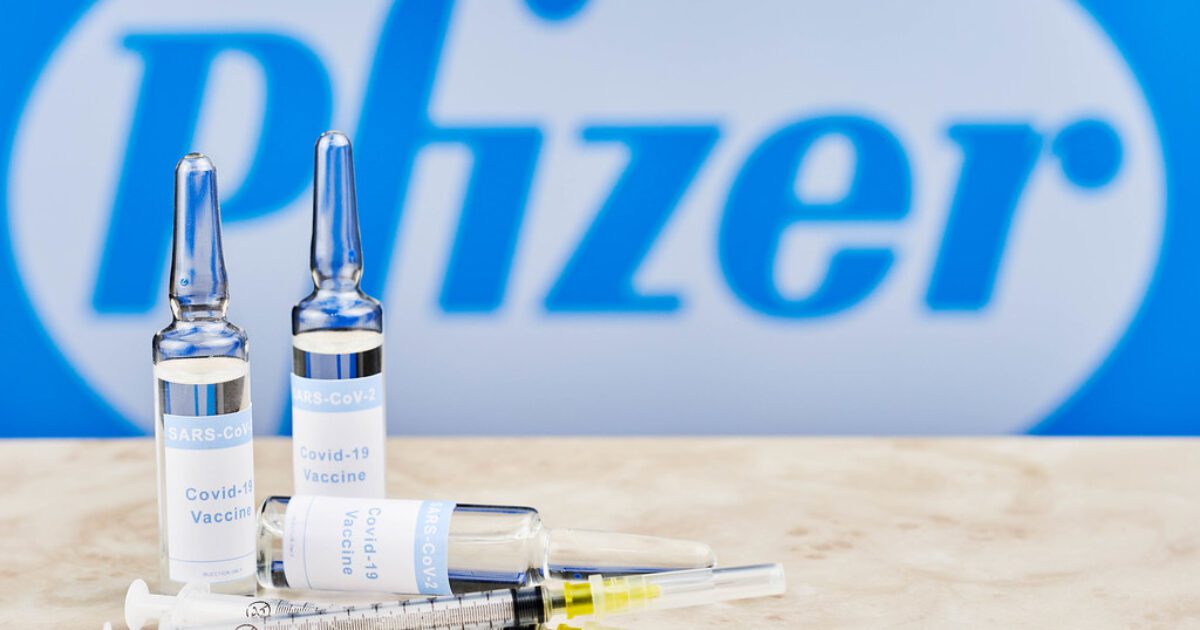Pharmaceutical giant Pfizer expanded its profile on Monday to access cancer treatments.
Why would the COVID-19 jab manufacturer need to specialize in cancer treatments?
Perhaps it’s another case of Big Pharma providing the ‘cure’ for the illness they created?
Pfizer announced that it acquired Seagen, a biotech firm that specializes in innovative cancer treatments, for $43 billion.
The Pharma giant said it would pay $229 a share in cash.
“We are not buying the golden eggs,” Pfizer CEO Albert Bourla reportedly said.
“We are acquiring the goose that is laying the golden eggs.”
NEW - Pfizer announced Monday that it had reached a deal to buy biotech firm Seagen, specializing in innovative cancer treatment, for $43 billionhttps://t.co/ehJeRSskIM
— Insider Paper (@TheInsiderPaper) March 13, 2023
JUST IN: Pfizer makes $43 Billion investment in drugs to treat cancer.https://t.co/pZJHLWUJA8
— Chris Nelson 🇺🇸 🏝 (@ReOpenChris) March 13, 2023
AP shared further details:
Bothell, Washington-based Seagen Inc. specializes in working with antibody-drug conjugate, or ADC, technology. Its key products use lab-made proteins called monoclonal antibodies that seek out cancer cells to help deliver a cancer-killing drug while sparing surrounding tissue.
Cancer treatments are a priority for Pfizer. They brought in $12 billion in revenue for the drugmaker last year. But Pfizer has only marketed a couple first-generation ADC treatments, a spokeswoman said.
Seagen has four treatments on the market. It also has a pipeline of drugs under development that includes potential treatments for a form of lung cancer and advanced breast cancer.
“We think this really changes dramatically the oncology presence of Pfizer, makes it one of a kind,” Bourla said.
Seagen’s top seller, Adcetris, treats lymph system cancers. It brought in $839 million in sales last year, a 19% increase over the previous year.
Seagen also has a deal with Pfizer’s Array BioPharma to develop, make and sell the breast and colorectal cancer treatment Tukysa. It brought in $353 million in sales for Seagen last year.
The company, which changed its name from Seattle Genetics in 2020, saw total revenue grow about 25% last year to nearly $2 billion. Seagen also shaved its loss to $610 million from $674 million in 2021.
The drug developer predicts about $2.2 billion in sales for this year.
Pfizer can add to its record-breaking profits acquired from the toxic COVID-19 mRNA gene therapy injections.
However, demand for the COVID-19 shots has drastically declined and Pfizer needs a new cash cow.
The Wall Street Journal explained:
New York-based Pfizer has been looking for acquisitions to help it offset an expected sales loss of $17 billion by 2030 as some top-selling drugs like blood thinner Eliquis and breast-cancer drug Ibrance lose patent protection in the next several years.
Sales of Pfizer’s Covid-19 vaccine and drug have buoyed the company’s performance in recent years. Executives have said they can’t count on the same level of sales going forward because the pandemic is entering an endemic phase, prompting the company to use its tens of billions of dollars in Covid-19 revenue for deal-making.
Cancer treatment is a key franchise for Pfizer, contributing more than $12 billion of the company’s $100 billion in sales last year.
Pfizer has been looking to increase its cancer-drug footprint. Analysts said Seagen’s therapies would expand Pfizer’s portfolio of breast and bladder cancer drugs, while complementing its efforts to build positions in other tumors with large patient populations like myeloma.
“We are investing to battle cancer,” Chief Executive Albert Bourla said in an interview. “We are investing to grow.”
Pfizer executives said they expect federal antitrust authorities will sign off on the deal because the company and Seagen bring complementary capabilities.
Honestly, it wouldn't be a shocker to see Pfizer develop a 'cancer vaccine' sometime soon.
WeLoveTrump has brought you multiple reports on the development of cancer vaccines.



Join the conversation!
Please share your thoughts about this article below. We value your opinions, and would love to see you add to the discussion!